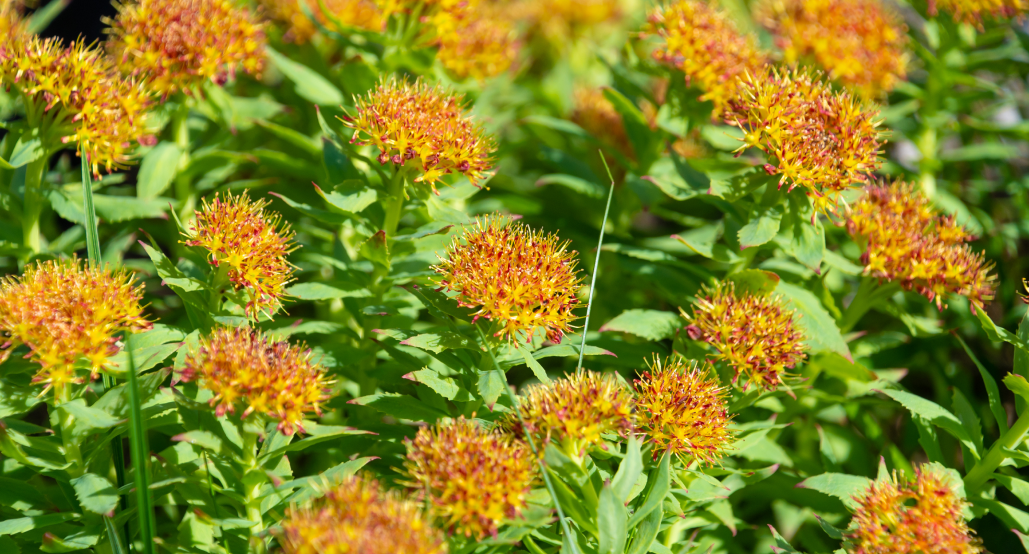If you feel as if life’s stressors are pulling you in a million directions as you adjust to life with less (or no) alcohol, you’re not alone. Between managing work, relationships, and personal goals, it’s no wonder so many of us feel overwhelmed, fatigued, and mentally foggy. If this sounds familiar, it’s worth considering a natural solution that’s been around for centuries: adaptogens.
Adaptogens are natural substances that help the body adapt to stress and restore balance. Among them, Rhodiola rosea, also known as the “golden root,” has been a standout for centuries. Back in the day, the Vikings tapped into its natural powers to endure the physical and mental demands of their voyages and conquests. Today, science helps explain the biological mechanisms behind its adaptogenic properties.
But how exactly does it work? Let’s dive into the recent research behind this powerful adaptogen and how it can support stress reduction, mental clarity, and energy — especially as you continue to shift away from alcohol and develop healthier habits.
The Science Behind Rhodiola Rosea
The power of Rhodiola lies in its roots, which are rich in over 140 active compounds, with rosavin and salidroside being the most prominent. These compounds are involved in three key physiological processes: stress reduction, mental clarity, and energy production. Three recent studies explain the scientific mechanism behind these properties — let’s take a closer look.
1. Rhodiola Reduces Stress
Rhodiola is best known for its ability to balance the stress response. A 2022 Molecules study found that it was effective in reducing stress-related symptoms for a variety of conditions.[1] Clinical trials showed that it reduces fatigue, boosts mental focus, and improves mood. For example, one study found that people taking Rhodiola felt more alert and less stressed within just one week, while another showed significant improvements in stress-related mental and physical fatigue after 4 weeks.
These benefits are linked to rosavins and salidroside, which help regulate stress hormones, protect the brain from stress-related damage, and lower cortisol levels. Given that high cortisol levels also directly contribute to alcohol cravings, Rhodiola’s stress-busting properties are particularly beneficial for anyone trying to drink less or eliminate alcohol altogether.
2. Rhodiola Clears Brain Fog
One of the toughest challenges in reducing alcohol consumption is managing cravings and the mental fog that comes with the territory. Rhodiola rosea has been shown to improve cognitive function and clear “brain fog,” making it easier to focus on personal goals and maintain the mental strength needed to coast through cravings.[2]
These effects come from Rhodiola’s ability to influence several mood regulating neurotransmitters, particularly serotonin, dopamine, acetylcholine, and norepinephrine. One study found that by upregulating dopamine and acetylcholine, it helps us think more clearly while reducing cravings associated with low dopamine levels that alcohol leaves in its wake.
3. Rhodiola Helps Fight Fatigue
Fatigue is a common symptom when reducing alcohol intake, as the body shifts from relying on alcohol’s quick energy boost to using its natural metabolic pathways. A 2023 British Journal of Nutrition study demonstrated that Rhodiola enhances energy and endurance during exercise.[3] For instance, doses of 200 mg taken about an hour before exercise were found to improve endurance in activities such as cycling, with participants lasting longer before exhaustion or completing time trials faster. Higher doses, such as 1,500–2,400 mg daily over several weeks, showed improvements in resistance training, including greater strength gains during bench press and squat exercises, reduced fatigue, and increased anaerobic power during short, intense efforts. Once again, the benefits were tied to salidroside and rosavin, which help regulate energy use, preserve muscle glycogen (the body’s stored energy), and reduce post-exercise muscle damage.
The study also explains how Rhodiola might support recovery and exercise adaptation through its antioxidant properties. It neutralizes harmful byproducts of intense exercise (such as free radicals), which helps protect muscles and reduce inflammation without interfering with the body’s natural repair processes. The result? Reduced muscle soreness, better physical performance, and faster recovery.

How To Get Started With Rhodiola Rosea: Practical Steps
If you’re interested in harnessing the benefits of Rhodiola, here are some ways to incorporate it into your lifestyle.
1. Go the Natural Route
You can start by exploring natural sources of Rhodiola by using dried Rhodiola root in herbal teas or tinctures. Some specialty stores and herbal markets carry dried Rhodiola, which can be brewed to create a mildly earthy, slightly bitter tea. Experimenting with natural Rhodiola allows you to experience its adaptogenic effects in a whole-food form, potentially enhancing the body's response to stress without the need for capsules.
2. Choose High-Quality Rhodiola Supplements
If you choose to go the supplement route, look for products that are standardized to contain at least 3% rosavins and 1% salidrosides — these are the key active compounds that provide the most benefit. Capsules or liquid extracts are convenient options, but make sure to select a reputable brand with third-party testing for quality assurance.
When it comes to adaptogens like Rhodiola, starting low and going slow is key. Begin with a dose of around 100-200 mg per day and gradually increase it as your body adjusts. Many studies suggest that a dose between 300-600 mg per day is effective for stress reduction and mood enhancement.
For best results, take Rhodiola in the morning or early afternoon, as it can have a mild energizing effect. Taking it too late in the day may interfere with sleep, especially if you’re sensitive to stimulants. Consistent daily use over several weeks tends to yield the most significant benefits.

Note of Caution
Always consult a healthcare provider before combining multiple supplements or adding a new one to your routine, especially if you have underlying health conditions or are taking medications. Rhodiola may interact with certain medications, such as antidepressants (SSRIs, MAOIs), blood pressure medications, and stimulants, potentially amplifying their effects and leading to unwanted side effects.
Also, keep in mind that Rhodiola shouldn't be mixed with other adaptogens like ashwagandha or ginseng, as it may overstimulate the nervous system, leading to restlessness, irritability, or trouble sleeping. It can also interact with mood-enhancing supplements like St. John's Wort or 5-HTP, potentially increasing serotonin levels too much and causing serotonin syndrome, which results in symptoms like nausea, agitation, or rapid heart rate.
Summing Up
All in all, adaptogens are a reminder of the incredible ability of the body to heal and restore itself when given the right tools. By supporting your body’s natural balance and resilience, Rhodiola works in harmony with your innate capacity to overcome challenges, reduce stress, and regain clarity. As you explore the benefits of this ancient root, think of it as a partner in your wellness journey, empowering your body to do what it’s designed to do: adapt, recover, and thrive. Whether you’re adjusting to a life with less alcohol or simply seeking more balance, tapping into these natural mechanisms can help you unlock a stronger, healthier, and more focused version of yourself.













